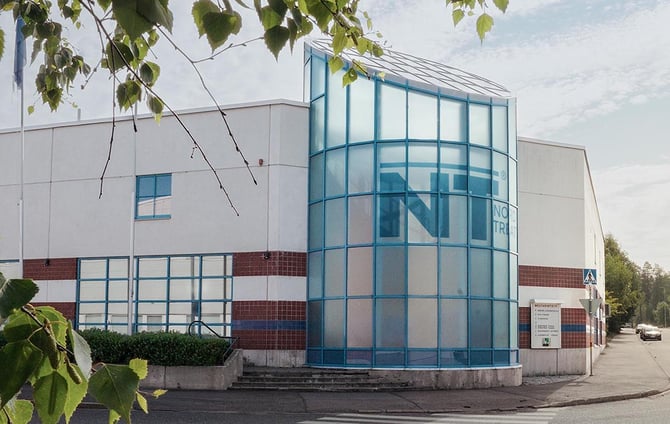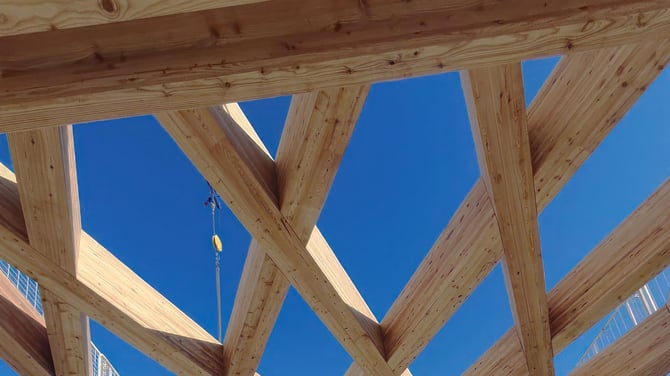At Nordtreat, we are dedicated to providing the construction materials industry with flame retardants that have the least possible environmental impact throughout their entire lifecycle.
Our innovative and patented NORFLAM® technology is derived from bio-based raw-materials, enabling us to support the development of eco-friendly construction practices. Furthermore, our solution aligns with the stringent fire safety regulations of the construction industry, ensuring that our flame retardants meet the latest standards.
We utilize bio-based chemicals in an innovative manner in our product development. 40% of the materials we use are bio-based and as a whole, more than 95% of the chemicals we use are non-fossil materials. Nordtreat products carry e.g. the M1 and A+ emission ratings, and have been LEED -certified.
It is our aim to reduce the VOC emissions from flame retardants used in new timber buildings to zero by 2025. The use of responsible and fire-safe timber products in construction improves the health and safety of new buildings to a significant degree.
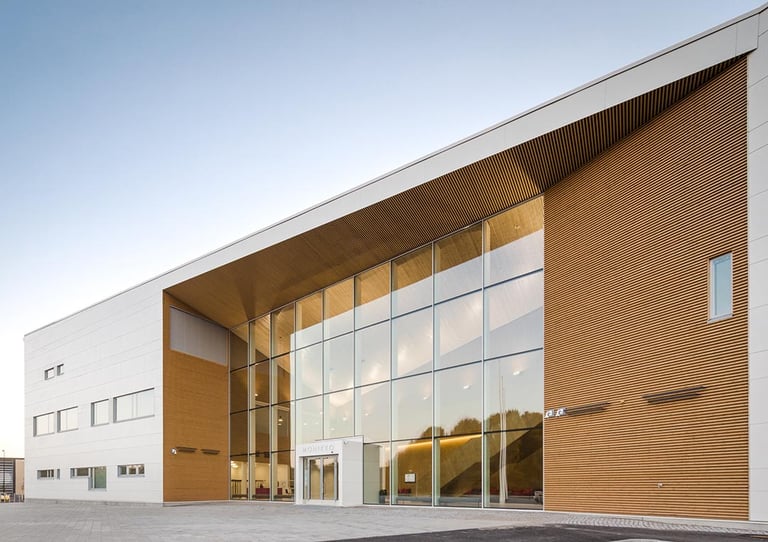
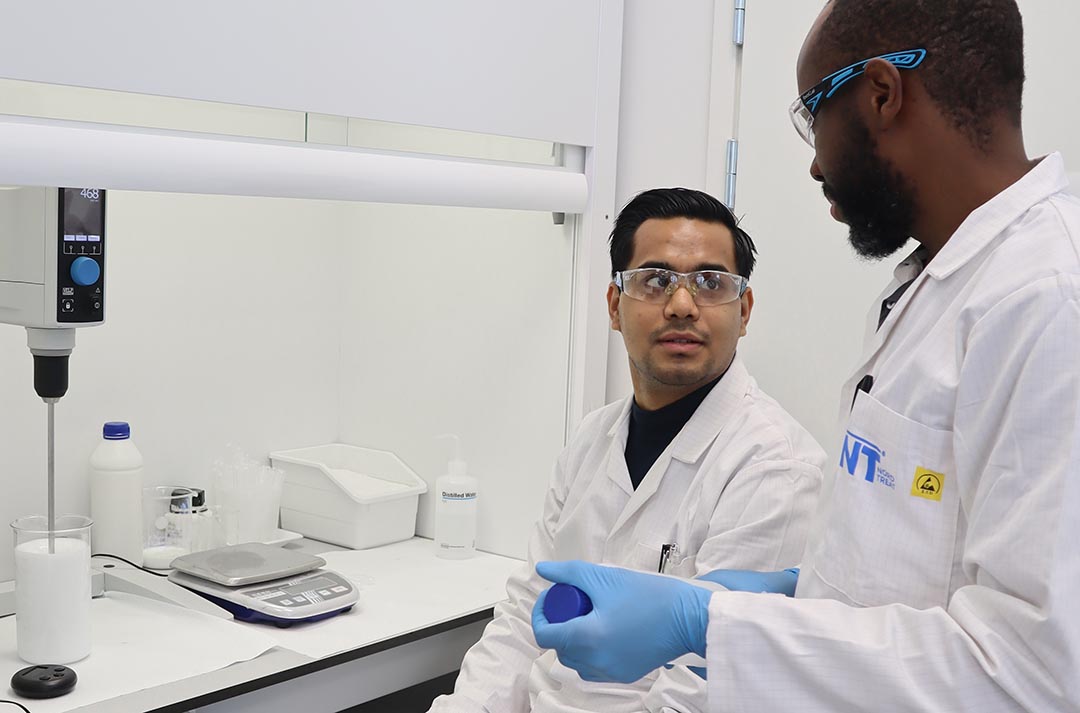
Nordtreat is dedicated to the utilization of renewable natural resources. We continuously increase our investment in the development of bio-based products and materials.
Any product made from a renewable and organic material can be considered a bio-based product. The materials used could, for example, be comprised of byproducts from the forestry industry.
40% of the raw materials used for NT DECO are bio-based. Our aim is to replace non-renewable materials in Nordtreat products with more responsible bio-based solutions.
On the other hand, less than 5% of our raw-materials are derived from fossil-sources.
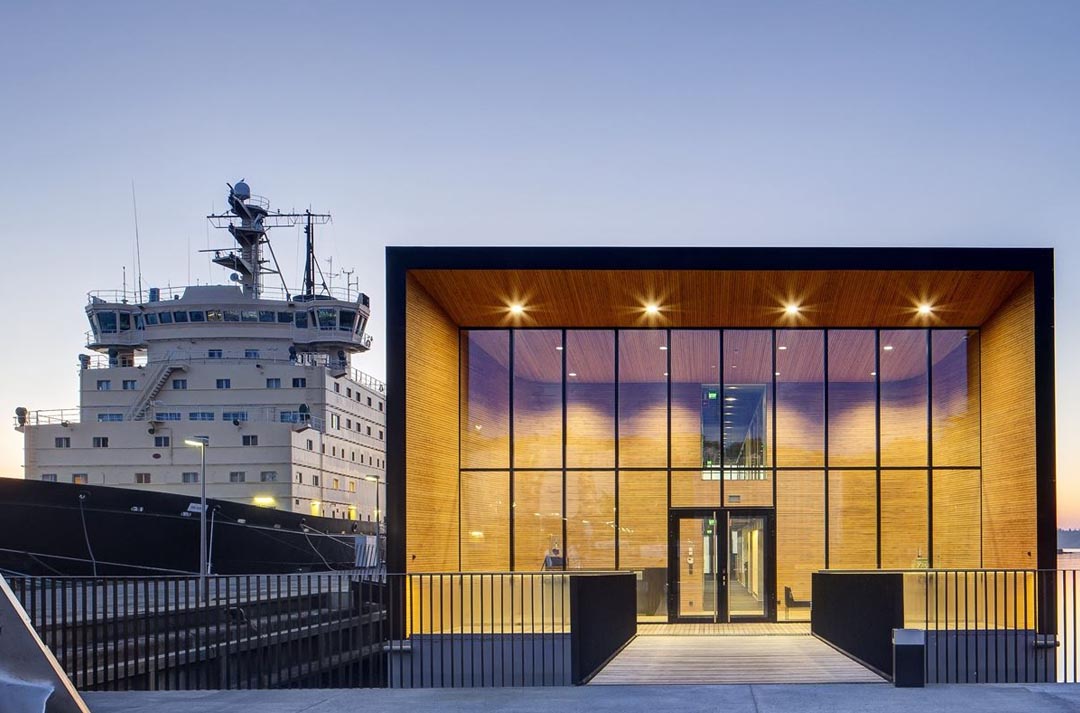

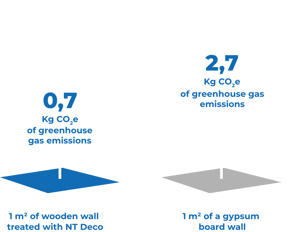
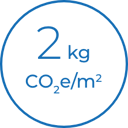
Carbon footprint describes the climate burden of a product, activity, or service throughout its life-cycle. Carbon footprint can be determined for total greenhouse gas emissions or just carbon dioxide emissions.
The carbon footprints of both Nordtreat's products and organization have been calculated including indirect factors, such as employee travel to and from work and business trips. The calculations were performed for 2021 (calendar year), and they comprise the company's sales activities in Finland.

Nordtreat's carbon footprint

| Purchased goods |
58 % | |
| Generated waste | 5 % | |
| Employee commuting | 7 % | |
| Company vehicles | 3 % | |
| Electricity and heat | 12 % | |
| Company premises | 2 % | |
| Business travel | 10 % | |
| Transport and distribution at various stages of the operation | 3 % |




Environment, Social and Governance (ESG) refers to responsible investment into environmental, social, and governance-related matters. ESG can be used to examine how companies and organizations treat the planet (Environment) and people (Social), or how the organization is managed (Governance).
Today’s investors are increasingly interested in the sustainability and responsibility of a business when making investment decisions. Thus, like Nordtreat, many businesses have already specified carbon neutrality as a goal.
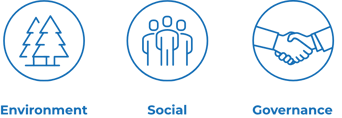
Life-cycle assessment (LCA) refers to an assessment of the environmental impact of a product, process, or service throughout its entire life-cycle from cradle to grave. A life-cycle assessment also includes an extensive review of organizational information. For flame retardants, the assessment ranges from the procurement of raw materials to the disposal of the product.
Life-cycle assessment sections used for Nordtreat
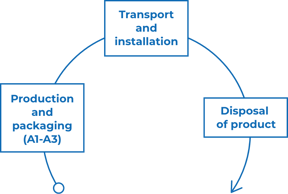
| Tested volume | 1 liter |
|---|---|
| Specific gravity | 1,15 kg |
| Global Warming Potential, fossil, A1–A3 | 2,21 kg CO2e |
| Global Warming Potential, total, A1–A3 | 1,83 kg CO2e |
| Secondary material input | 0,275 % |
| Secondary material output | 0,0 % |
| Total amount of energy consumed, A1–A3 | 8,36 kWh |
| Amount of water consumed, A1–A3 | 0,0682 m3e |
![]()
SUBSTANCES, REACH – very high concern VP-027-C: NT Deco contains no REACH substances of very high concern (SVHC) comprising more than 0.1% (1 000 ppm) of the product.
Manufacturing process

NT DECO's life-cycle assessment ranging from the sourcing of materials to the disposal of the product was conducted in accordance with the standards of Greenstep. You can find more information on life-cycle assessments on the website of Finland's environmental administration:
Environmental Product Declaration (EPD) is a voluntary standardized and reliable method for presenting the life-cycle assessment of a product or service. Its purpose is to examine and compare the environmental impacts generated during different stages of the manufacture of a product, and assess the differences between products from the perspectives of the environment and sustainable development.
An EPD is a voluntary document certified by a third party that presents the environmental impact of a product or service in a reliable manner. The EPD is produced based on a life-cycle assessment by calculating the impacts that are included in the EPD according to specific standards (such as EN 15804). You can find more information about EPDs on Wikipedia, for example.

![]()
The EPD Registry Number for NT DECO is HUB-02344
The EPD assessment was conducted in accordance with the EN 15804+A2 and ISO 14025 / ISO 21930 standards.
In 2015, the United Nations published its sustainable development program Agenda 2030 and the 17 Sustainable Development Goals comprised by the program. The program has been adopted by all UN Member States.
Agenda 2030 offers a common language and a compass for resolving social sustainability challenges. In addition to states, achievement of the goals will also require extensive contributions from local governments, the private sector, the civil society, and the citizens.
Agenda 2030 aims to achieve sustainable development in terms of the economy, the people, welfare, and the environment.
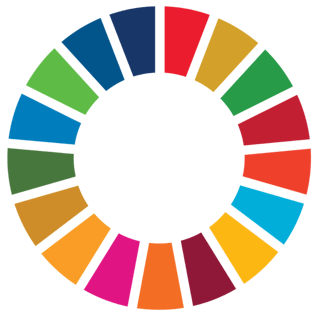
With regard to the UN Sustainable Development Goals, Nordtreat's particular areas of focus include
- Gender equality
- Decent work and economic growth
- Industry, innovation, and infrastructure
- Sustainable cities and communities
- Responsible consumption and production
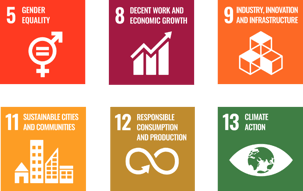
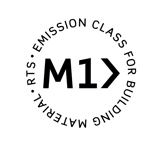
M1 Emission Classification (A+ in France and AGBB in Germany)
M1 Emission Classification for low-emitting building materials sets limit values for the emissions of volatile organic compounds (VOCs), formaldehyde, and ammonia. The acceptability of the odor associated with the material is also assessed during the classification process.
Nordtreat's NT DECO and the NORFLAM® technology are included in the scope of M1 Emission Classification.
You can read more about M1 classification on the website of the Building Information Foundation RTS:
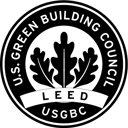
LEED Is the Most Widely Used Green Building Rating System in the World
Developed by the U.S. Green Building Council, LEED is used to assess the health, efficiency, environmental friendliness, and cost-effectiveness of buildings. The system's strengths include the consistent criteria and its global comparability. NT DECO is covered by LEED v4, which refers to low-emitting products. LEED v4 is a next-generation standard for the design, construction, and operation of high-performance green structures.
More information on LEED can be found on the website of the U.S. Green Building Council, which is in charge of the certification process:
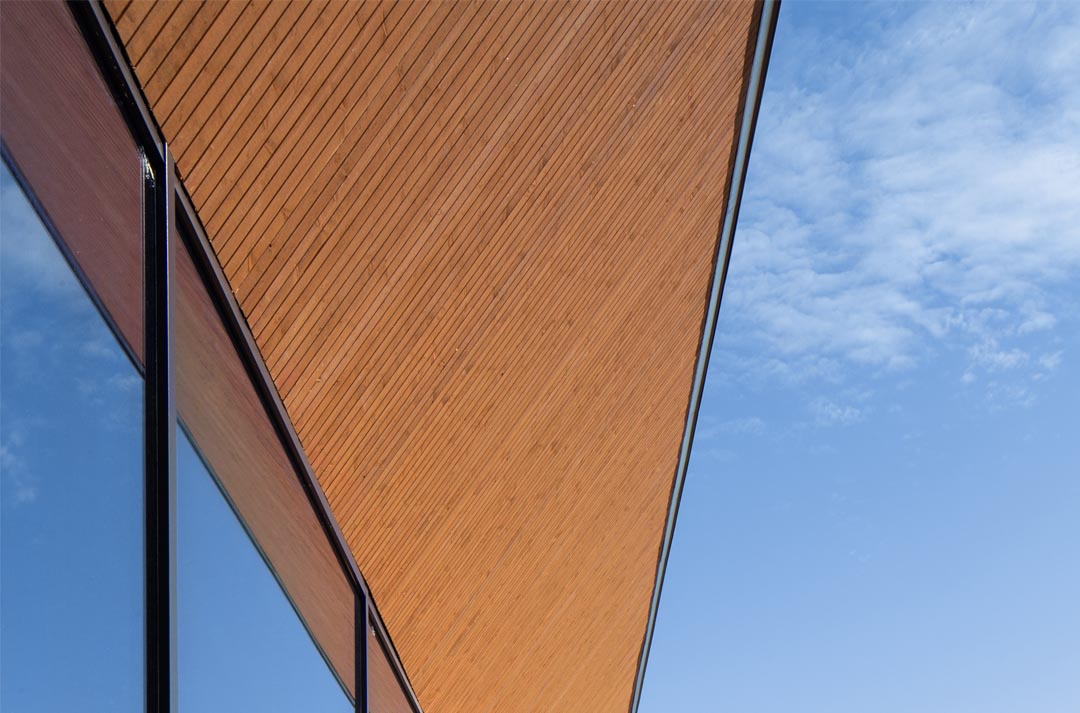
Nordtreat's reputation as a responsible company is based on our operating principles, which apply to our employees, shareholders, customers, suppliers, authorities, and other stakeholders around the world who live and work in environments protected against fire using Nordtreat products.
We promote the UN Sustainable Development Goals in our work. We are also committed to the ten principles of the UN Global Compact, the UN Guiding Principles on Business and Human Rights, the ILO Declaration on Fundamental Principles and Rights at Work, and the OECD Guidelines for Multinational Enterprises.
Review our Code of Conduct and Supplier Code of Conduct:
Read more about the human rights declarations and guidelines Nordtreat has committed to following
More information can be found on the organizations’ websites:
- Global Compact: UN Sustainable Development Goals
- UN Universal Declaration of Human Rights
- UN Guiding Principles on Business and Human Rights
- ILO Declaration on Fundamental Principles and Rights at Work
- OECD Guidelines for Multinational Enterprises
OTHER TOPICS YOU MIGHT BE INTERESTED IN
